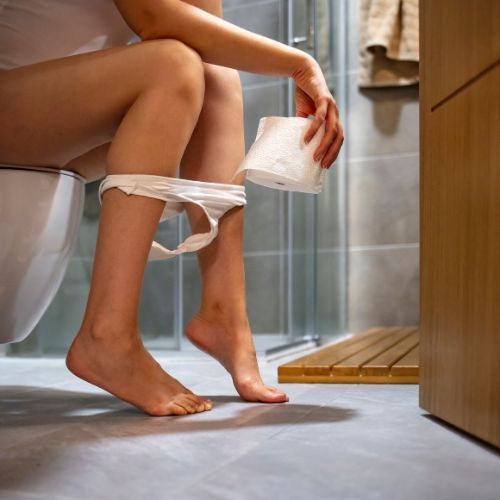
Penises come in all different shapes and sizes and having a curved erection isn't necessarily a cause for concern. But, if this is something you've noticed, you may like to read on...
A condition resulting from fibrous scar tissue that develops on the penis and causes curved, painful erections.
Peyronies Disease occurs when scar from a trauma has not been reabsorbed into the circulatory system but sits in the erectile tissue and hardens over time. The thickened connective tissue (called plaque) can develop as a result of trauma during intimacy, during life or develop over time without incident.
If the thickened tissue progresses, it can result in curvature of the penis which may contribute to painful intimacy or difficulty maintaining an erection.
For many men, Peyronies Disease also causes stress and anxiety, greatly effecting your mental health and wellbeing.
Peyronies Disease rarely goes away on its own. In most men with Peyronies disease, the condition will remain as is or worsen. Early treatment soon after developing the condition may keep it from getting worse or even improve symptoms. Even if you've had the condition for some time, treatment may help improve bothersome symptoms, such as pain, curvature, and penile shortening.
Symptoms
Peyronies Disease signs and symptoms might appear suddenly or develop gradually. The most common signs and symptoms include:
Scar tissue - The scar tissue associated with Peyronies Disease — called plaque but different from plaque that can build up in blood vessels — can be felt under the skin of the penis as flat lumps or a band of hard tissue.
A significant bend to the penis - Your penis might curve upward or downward or bend to one side.
Erection problems - Peyronies Disease might cause problems getting or maintaining an erection (erectile dysfunction). But, often men report erectile dysfunction before the beginning of Peyronies Disease symptoms.
Shortening of the penis - Your penis might become shorter as a result of Peyronies Disease.
Pain. You might have penile pain, with or without an erection.
Other penile deformity - In some men with Peyronies Disease, the erect penis might have narrowing, indentations or even an hourglass-like appearance, with a tight, narrow band around the shaft.
Early treatment gives you the best chance to improve the condition — or prevent it from getting worse
Treatment
Therapeutic Ultrasound is showing promising evidence as an effective conservative treatment to reduce the size and progression of these plaques.
At Pelvic Health Melbourne we use therapeuic Ultrasound which directs the sound waves through the area of thickened tissue to commence reducing the plaque size and thickeness. We Ultrasound the area for 10 minutes 2-3 times a week over 4 weeks and track changes to the plaque area.
The patient will then use Vitamin E oil to massage into the plaque area on the day of treatment and the day after to help maintain the softened tissue and help remove the tissue that has broken down.
If you have any concerns, please make an appointment with our supportive physio team.
More from the blog



03 9325 1511
info@pelvichealth.melbourne
ABOUT US
While you don’t talk about pelvic health every day, we do. Our team of specialised physiotherapists are highly skilled and more importantly, have the emotional intelligence to help you through whatever challenges you’re facing. Talk to us today.
ABOUT US
While you don’t talk about pelvic health every day, we do!
Our team of pelvic health therapists are passionate about helping you through whatever challenges you’re facing. Talk to us today.

We acknowledge the Traditional Owners of the land where we work and live, the Bunurong and Wurundjeri peoples of the Kulin Nation and pay our respects to Elders past and present. We celebrate the stories, culture and traditions of Aboriginal and Torres Strait Islander Elders of all communities who also work and live on this land.



